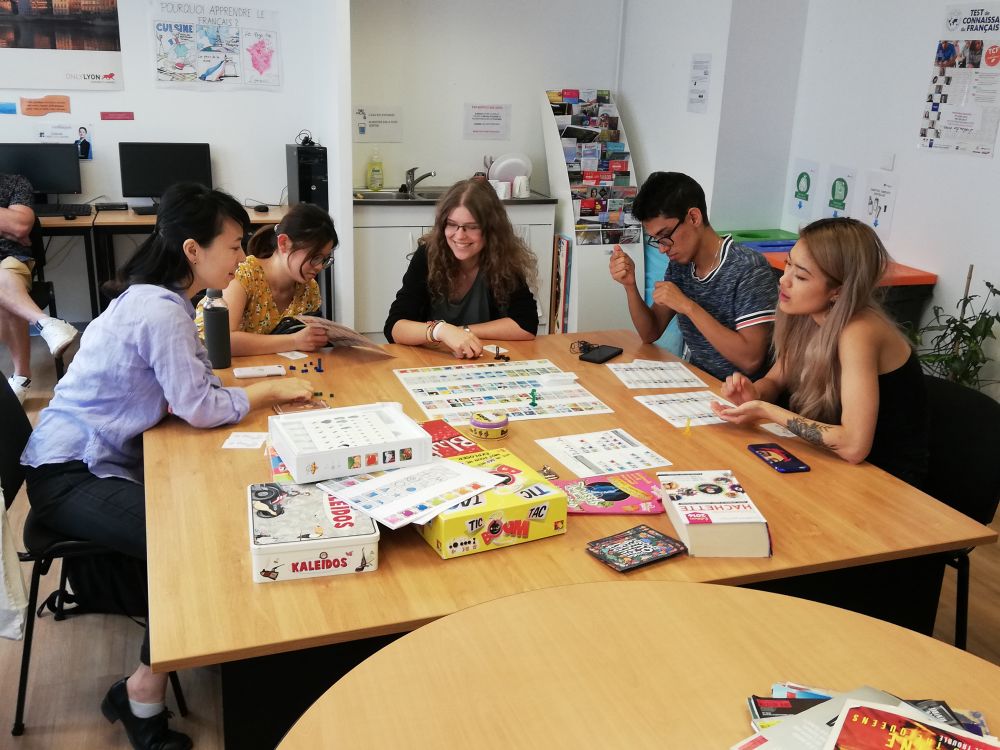Culture shock? Prepare yourself with these hints!
When one goes abroad, especially for a long stay, he can feel overwhelmed by a strange feeling called cultural shock. This is not a fatality, and cultural shock can be fought! Find out how by reading these 10 tips!
- First, you must know what culture shock is!
As written on Wikipedia, culture shock consists of difficulties in assimilating the new culture, causing difficulty in knowing what is appropriate and what is not. - Read and inform yourself before departure!
Try to get as much information as possible about the country.
Try to speak with people who have lived there, browse the internet Prepare yourself for what you have to expect! - Culture shock happens to many people! Don't be afraid to speak of it to other foreign students or your family!
- Try to see the cultural shock comically. You could even create a blog or write in a diary about it. Just try to take it from the fun side!
- Many people suffering from cultural shock become introverted. Try not to behave like that. Always keep in mind that your situation is temporary and that you will regret not having made the most out of your trip abroad!
- Try to understand why people are different. Show an open mind as much as possible, even if some behaviors seem incorrect or rude to you considering your own culture.
- Make friends, either locals or foreigners! It's not that easy, yeah, but it will help you integrate into the local culture!
- Be patient! If you try to integrate yourself, cultural shock will eventually vanish or become less important! Don't expect it to be gone overnight!
- Find an activity that you like and practice it! This will help you air out your mind, and help you make friends!
- Learn the language! Trying to learn your host country's language will help your integration into the country!
How to deal with culture shock when going abroad
Here are some recommendations to make the culture shock less important and the recovery easier when going abroad.
- Cultural relativism: focuses on the idea that no one culture is "right" or "wrong". So don't use your standards to compare and judge other cultures with, but try to understand why the way of doing the other culture differs from yours, and vice versa.
- Get prepared: learn the language! Culture and language use are strongly linked. This will give you not only some control over the new culture once you get there, but also the opportunity to meet people and socialize. Making friends as soon as you can is important. Don't forget to find out about food, customs and so on before you go, not to be unpleasantly surprised or even shocked.
- Work on yourself: raise your self-awareness and listen to yourself! Be observant of what's going on around you, and try to notice behavioral differences. Try not to lose your temper, keep your sense of humor, and reserve judgment when you get frustrated.
- Be sensitive, open, and tolerant: when something goes wrong take a new look at yourself, try to understand if you might have done it the "wrong way" within the other culture. Don't dismiss things you don't know about. On the contrary, try to put yourself in the shoes of the other culture to better understand how their world is and why.
- Be social and extrovert: even if you tend to be shy, adopt a new identity and be the person you've always dreamed of being. Forget stereotypes! You blind yourself to all the other characteristics peculiar to the other culture when you focus on stereotypes.
Some situations to avoid! A common reaction to difference is seeking things you are acquainted with.
This is part of the critical stage 2 in the cultural shock process: you tend to over-idealize your own culture and as a result, make the gap between both cultures more important! So be careful, this generally leads to super ethnocentric moaning situations in which you tend to downgrade the benefits of your host culture.
Don't forget that the main objective when going abroad is not to entirely replicate your home country, do you think it would be worth going to a foreign country then? In a nutshell. Enjoy differences!
See the positive side of this experience, and decide to adapt your habits and behavior by changing them a little bit to better match the culture you're in. You will be surprised at how fast things will pleasantly evolve.
People will appreciate the effort you make, and you'll enjoy a lot this unique and rewarding experience!
5 phases of Culture shock
Going abroad and leaving your country, the one you've grown up in, your culture and traditions... that's not easy for anyone. You can even quickly feel homesickness, due to what's called "culture shock". This mainly happens in the case of a long stay (several months) in a different culture. Culture shock has been divided into a process of 5 main different phases. Let's see them with Rebecca Fong, a teacher of intercultural communication at the University of the West of England.
- Euphoria or exhilaration: this phase is also called "the honeymoon period". It usually takes from a few weeks to a few months depending on your personality and the cultural distance, that's to say how different both cultures are. Everything is new and great, you see it as an exciting experience and you tackle your problems with good humour. Actually, you're too busy to get depressed.
- You realize that you're an outsider: You start to experience the differences between both cultures and to face some problems: traffic problems, you don't like the typical food there... Even if people are pretty kind to you, you just feel like you're a misunderstood person. This is a critical stage because you begin to over-idealize your own culture and make the gap between both cultures more important. Lots of people give up at this stage after having suffered it for a while.
- Recovery and acculturation: this is the learning process, your language skills definitely improve and, as a result, your contact with the culture also improves and you integrate better with it. You also make more efforts to be part of the community, making friends and being interested in the typical manners and customs of the country. You're on the right track to recover from your culture shock! However, in this stage, you might still want to impose your own ideas rather than accepting the one of the host culture...
- You adjust properly and appreciate the other culture: you start to understand the norms and values of your host culture for what they are and feel pretty integrated and comfortable with it. You might even believe that some of your host culture's values are better than your own!
- Going back home: Going back home can be quite a challenge too. Indeed, you might face some difficulty to re-adapt to your own culture after a long period spent abroad! This might be considered as re-acculturation or re-entry shock. But don't despair, as Rebecca Fong says; "there is a light at the end of the tunnel, and the more times you experience culture shock, the easier it's going to get."
Now that you know this 5-stage process better, we'll give you some tips on how to deal with culture shock when going abroad, how to acculturate and adjust properly to the other culture, making the culture shock less important and the recovery easier! In the meantime, you can have a look at these useful advices for students going abroad.
Read more...
Did you like these tips? You can find a lot of content on this Blog. Here are some suggestions:
How studying abroad has changed my life?
17 Recommendations to Get Along With Your Host Family Abroad!
How to write a letter to your future host family as an exchange student?
Discover this and much more with Nacel. We're here to help you.




